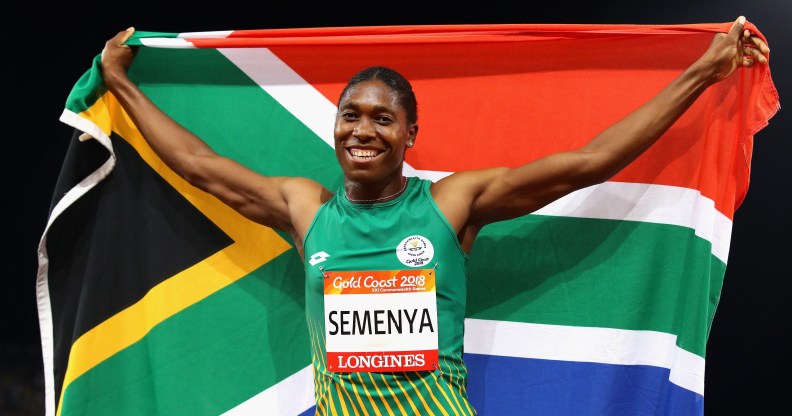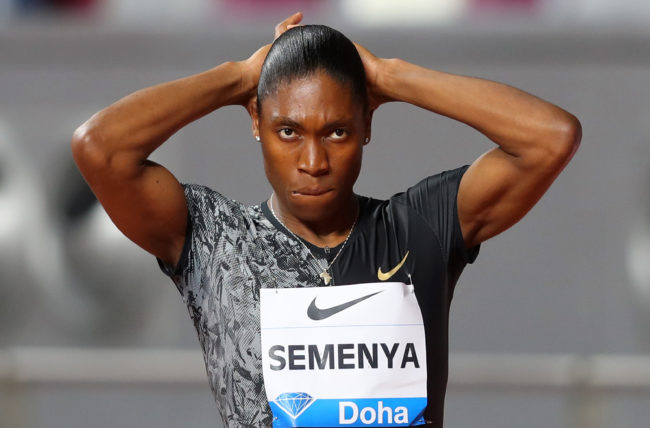Caster Semenya files appeal against testosterone court ruling

DOHA, QATAR – MAY 03: Caster Semenya of South Africa looks on prior to competing in the Women’s 800 meters during the IAAF Diamond League event at the Khalifa International Stadium on May 03, 2019 in Doha, Qatar. (Photo by Francois Nel/Getty Images)
South African runner Caster Semenya has filed an appeal against a ruling that ordered her to take drugs to lower her naturally-high testosterone levels.
The lesbian Olympic gold medallist, a cisgender woman who has naturally-high testosterone levels, has been fighting against the imposition of International Association of Athletics Federations rules that require women competing in women’s sports to meet a maximum testosterone threshold.
Semenya filed an appeal before the Swiss Federal Supreme Court on Wednesday (May 29), weeks after losing her initial battle before the Court of Arbitration for Sport.
The athlete, who was born female and has presented as female for her entire life, vowed to continue her challenge against rules that would require her to take testosterone blockers to compete.
South African runner Caster Semenya: They won’t stop me being who I am
In a statement she said: “I am a woman and I am a world-class athlete. The IAAF will not drug me or stop me from being who I am.”
The athlete also sent thanks “to those around the world who continue to support her efforts to secure her right to run free.”

Caster Semenya of South Africa looks on prior to competing in the Women’s 800 metres during the IAAF Diamond League event at the Khalifa International Stadium on May 03, 2019 in Doha, Qatar. (Francois Nel/Getty)
She will ask the Swiss court to consider whether the IAAF’s policy violates her right to freedom from discrimination, right to physical integrity, right to economic freedom, and respect for human dignity.
Dr. Dorothee Schramm of Sidley Austin LLP in Geneva, who is representing Semenya in the action, added: “The IAAF regulations violate the most fundamental principles of Swiss public policy. In the race for justice, human rights must win over sporting interests.”
Testosterone policy is at odds with medicine
Semenya’s South African lawyer Gregory Nott added: “It is gravely concerning that the IAAF has called on doctors to ‘clarify’ the gender identities of female athletes and justified medical interventions on female athletes as ‘gender-affirming’. Such views are based not in modern science or medicine.
“Instead, they reflect an outdated and deeply flawed socio-cultural stereotype of what it means to be a woman.”
The IAAF’s policy has been rejected by the World Medical Association, which in April urged doctors around the world to refuse to take part in the system to classify female athletes.
The medical body representing more than 10 million physicians called for the immediate withdrawal of the regulations, which it says “constitute a flagrant discrimination based on the genetic variation of female athletes and are contrary to international medical ethics and human rights standards.”
WMA President Dr. Leonid Eidelman said: “We have strong reservations about the ethical validity of these regulations.
“They are based on weak evidence from a single study, which is currently being widely debated by the scientific community. They are also contrary to a number of key WMA ethical statements and declarations, and as such we are calling for their immediate withdrawal.”

